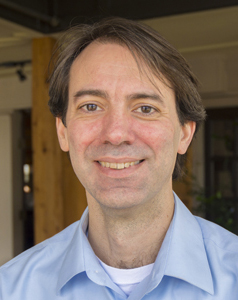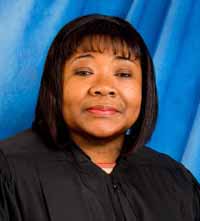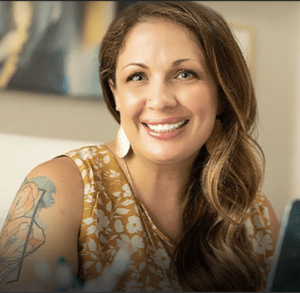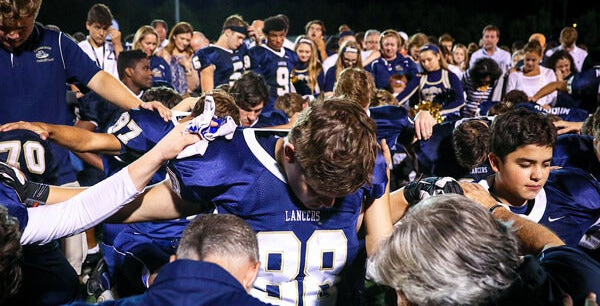Attorneys in three ongoing freedom of religion cases are urging federal judges to consider recent U.S. Supreme court decisions when ruling on their disputes.
The development was pointed out by Don Byrd, author of Baptist Joint Committee for Religious Liberty’s Blog from the Capital.

Don Byrd
His Aug. 19 post began with a summary of Cambridge Christian School Inc., v. Florida High School Athletic Association, a so-far successful legal effort by a private Christian school to use loudspeaker systems to pray before football games hosted by the FHSAA.
Since the case first went to court, Byrd noted, “the Supreme Court issued its decision in Kennedy v. Bremerton, in which the court sided with a football coach whose practice of praying at the 50-yard line after games was barred by his school district. The court found the coach’s speech to be protected private speech and not government speech, despite his official duties continuing after the game.”
The Tampa school claims that decision supports their argument “that their loudspeaker prayer is protected private speech, even though Kennedy involved a coach’s prayer at the 50-yard line and not a prayer broadcast over the public address system. The case is one of the first significant tests of the impact of the Kennedy decision.”
“The case is one of the first significant tests of the impact of the Kennedy decision.”
That argument currently is before the Atlanta-based 11th District Court of Appeals, where the school filed an Aug. 8 appeal. It seeks to overturn an earlier U.S. District Court determination that the association did not violate the school’s First Amendment rights by denying use of a public address system for pre-game prayer before a 2015 state high school championship football game held at the Citrus Bowl in Orlando.
Attorneys for Cambridge Christian also have disputed the association’s claim that loudspeaker use during the championship game is reserved for government speech and therefore is not constitutionally protected private speech.
“The record shows that FHSAA permits schools and other private actors to deliver a variety of messages over the loudspeaker: welcoming remarks, promotions, music, and even prayers (at all games except the championship),” according to the school’s 74-page brief filed with the appeals court.
“Moreover, FHSAA uses the loudspeaker to call for moments of silence, deliver ethical messages, promote sportsmanship, and honor persons and events. But it will not allow these same themes to be expressed under a religious banner. Because the Prayer Ban constitutes viewpoint discrimination, and has been arbitrarily applied, it violates CCS’s free-speech rights,” the appeal contends.
But in her March 31 denial of the school’s petition, Judge Charlene Edwards Honeywell of the U.S. District Court for the Middle District of Florida noted that being denied use of the public address system is not a denial of the right to pray.
“This case is not about whether two Christian schools may pray together at a football game.”
“To understand what this case is about is to first recognize what it is not about. This case is not about whether two Christian schools may pray together at a football game. It is undisputed that CCS and (University Christian School) engaged in group prayer before and after the 2015 FHSAA Class 2A Football State Championship Final game. Indeed, players and coaches from both teams, along with some officials, met at the 50-yard line of the Citrus Bowl to pray together before the game and again on the sidelines after the game,” Honeywell said in her decision.
The ruling also noted that Cambridge Christian players and staff previously engaged in pre- and post-game prayers at games held in other locations where public address systems were unavailable. FHSAA’s denial of the loudspeaker use at the championship game, therefore, did not represent an infringement of the school’s free-exercise rights.

Judge Charlene Edwards Honeywell
“On the facts of this case, the court concludes that communal pregame prayer over the PA system is a preference of CCS’s, not a deeply rooted tradition that rises to the level of a sincerely held belief,” the judge wrote.
Another case winding its way through the federal court system is Fellowship of Christian Athletes v. San Jose Unified School District Board of Education.
FCA sued the California school system for enforcing compliance with a board policy prohibiting student clubs from discriminating based on ethnicity, gender, religion, gender identity, race, mental or physical disability and sexual orientation. The district determined that that the purity statement FCA required its student leaders to sign violated the policy and withdrew Associated Student Body status from several chapters.
The district determined that that the purity statement FCA required its student leaders to sign violated the policy.
The 9th U.S. Circuit Court of Appeals heard oral arguments in the case Aug. 9, after a lower federal court denied the organization’s plea for a preliminary injunction pending appeal.
In its June 1 denial of the injunction, the U.S. District Court for the Northern District of California said the school district policy did not violate FCA’s free speech or freedom of religion because the policy is uniformly applied to all student groups.
“In other words, while the government may not impose special disabilities on the basis of religious views or religious status, ‘the Free Exercise Clause does not inhibit enforcement of otherwise valid regulations of general application that incidentally burden religious conduct,’” the court ruled, citing a previous ruling.
Byrd said the 9th District Court of Appeals must determine if Christian Legal Society v. Martinez applies to the FCA case. That 2010 U.S. Supreme Court ruling allowed universities to deny status to religious student groups that do not accept all students as eligible for leadership positions.

Lorie Smith
The third case, and one the U.S. Supreme Court already has agreed to hear, is 303 Creative LLC v. Elenis, which pits Christian web designer Lorie Smith in Colorado against the state’s nondiscrimination law.
Lower courts ruled against her claim that having to create same-sex wedding websites violates her freedom of religion and free speech rights as a small-business owner. In its brief submitted to the high court, Colorado said its anti-discrimination act safeguards patrons from unfair treatment based on race, religion or sexual orientation.
“Public accommodations laws ensure all customers can participate in these everyday commercial exchanges,” the brief argues. “Following a common-law tradition that predates the founding, these laws protect customers’ ability to buy goods and services regardless of their religion, race, disability or other protected characteristic. Allowing a business to refuse service because of who these customers are would break from this tradition and deny them full participation in the marketplace.”
The 303 Creative LLC v. Elenis case is likely to ring a bell for many, Byrd said in his blog.
“If this all sounds familiar, it may be because this same Colorado law has been before the U.S. Supreme Court before. In Masterpiece Cakeshop (2018), the court ruled in favor of cakemaker Jack Phillips, who was charged with violating the law because he refused to make a custom cake to celebrate a same-sex wedding,” Byrd said.
However, that ruling was not a clean cut, he added. “The Supreme Court determined the commission adjudicating Phillips’ case had made disparaging remarks about religion and thus could not appropriately consider his religious freedom claim, avoiding the core question of whether refusing to make the cake violates the law.”
Related articles:
Most Americans oppose high court’s decimation of church-state separation, surveys show
Supreme Court to hear case of wedding website designer who won’t serve same-sex couples

